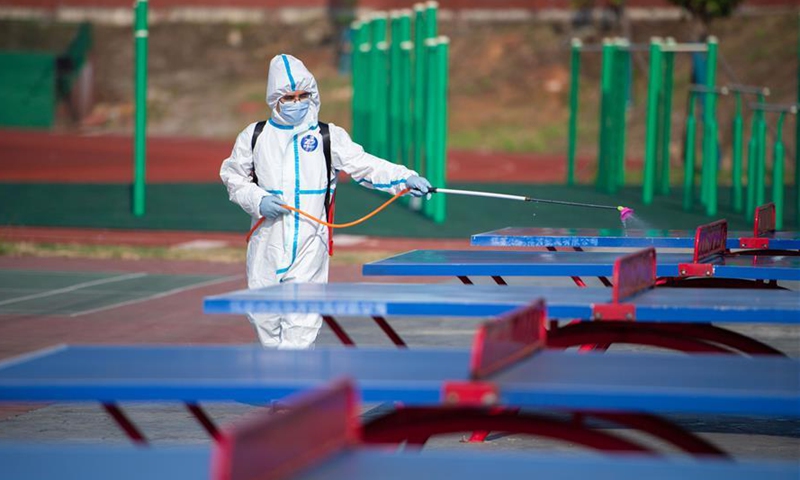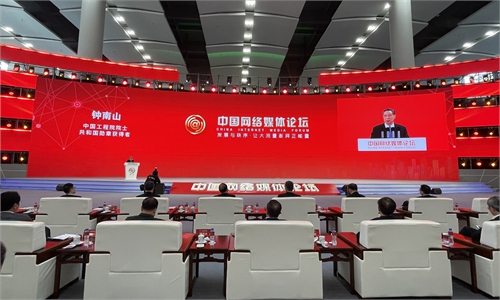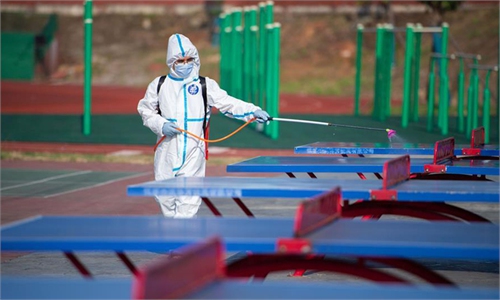Closure of schools, workplaces and cancellation of public events most effective in curbing virus spread, study from Zhong Nanshan team shows

A staff member disinfects table tennis facilities at Daowu middle school in Liuyang city of Changsha, capital of central China's Hunan Province, August 31, 2020. File Photo: Xinhua
A new study jointly conducted by China's top respiratory specialist, Zhong Nanshan, and tech giant Tencent shows that an earlier implementation, longer duration and stricter intervention policies at the early stage of the outbreak were associated with reduced infections of COVID-19.
The study provides more reliable evidence of the quantitative effects of policy interventions on the COVID-19 epidemic and suggests that stricter public activity interventions should be implemented at the early stage of the epidemic for improved containment, according to the research results announced by Tencent on Monday.
The counterfactual model, which analyzes the eight major containment and closure policies of epidemic prevention and control in 145 countries and regions, from December 31, 2019 to July 1, 2020, introduced a novel counterfactual estimator to evaluate the effects of these interventions on COVID-19 time-based reproduction rate.
The average intervention effect revealed that all interventions significantly decreased the reproduction rate after their implementation. The reproduction rate decreased by 30 percent in 25 to 32 days after the implementation of the policy intervention.
The study also shows that the more stringent and prolonged containment measures implemented early in the outbreak, when infections slowly increase, the fewer people will eventually become infected. However, in the middle and later stages of the epidemic, when infections rapidly increase, the effect is the opposite. The more stringent the measures applied at later stages, the longer they last with an eventual rapid increase in the number of infections.
Sun Jichao, lead author of the survey, said that the reason for this was not a failure of anti-epidemic measures, but because when the strict control measures were put in place until the outbreak began with a rapid increase in the number of infections, it was too late to rectify. Therefore, it provides the lesson that acting as quickly as possible at the beginning of the epidemic will have the greatest impact.
The survey also shows that among the eight interventions, schools and workplaces closings, and public events cancellations demonstrated the strongest and most consistent evidence of effective containment.




